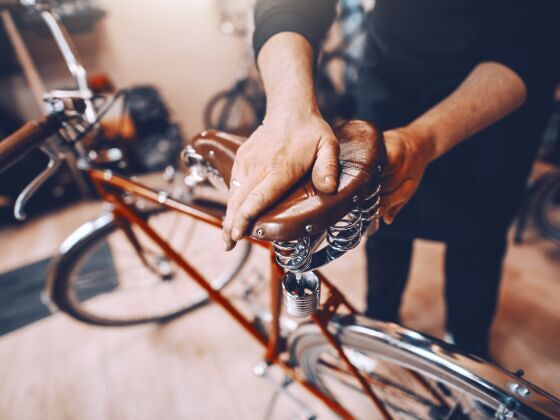Paw Paw, West Virginia
The convenience store in Paw Paw, West Virginia, is called the Liberty Gas Express Stop, a name which just about sums up everything an early 21st-century American could want. There are pickup trucks out in the parking lot, and large men wearing blaze orange camouflage overalls inside. Paw Paw is not the kind of town where you’d expect to find a cyclist’s hostel, but there it is: the Red Rooster.
